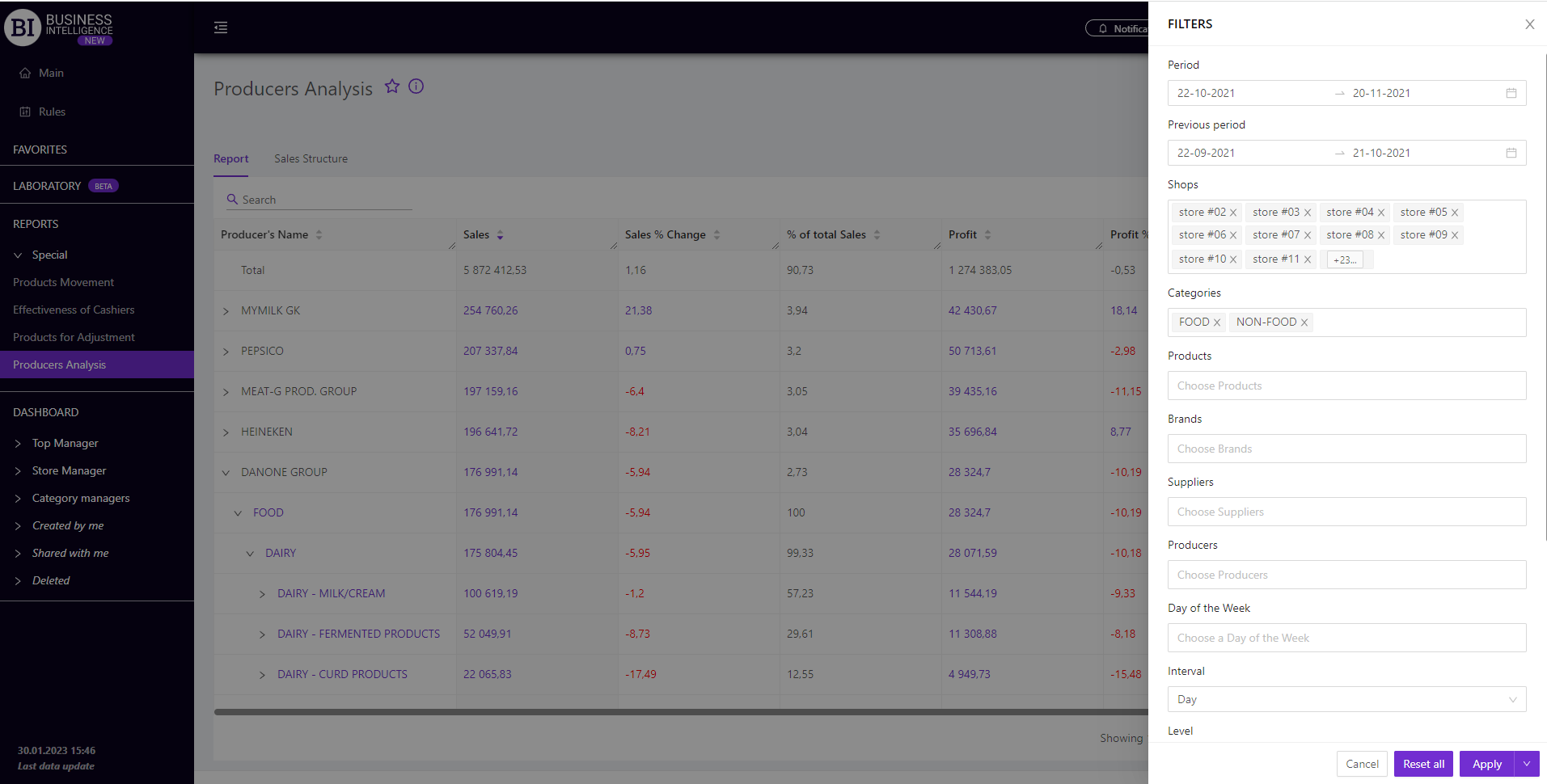Sections
Store cardBasket AnalysisQuadrant analysisProducers analysisProduct CardBrand salesPlanogram EfficiencyLost SalesCategory managersSuppliers salesMarkers comparisonProducts salesCategories salesCategory CardStores salesSales ChangeUnsaleable productsPrediction of OoS24-Hour AnalysisProducts movementEffectiveness of сashiersProducts for adjustmentPOS-terminal TrafficSales PlansPromotion AnalysisNew SKUEffectiveness of Loyalty ProgramPromo CardRFM - analysisStatistic of Loyalty ProgramCustomer Loyalty SegmentationLoyalty CardComparative DynamicsReceiptsStock MonitoringMainPRODUCERS ANALYSIS
Reports on Datawiz BI service
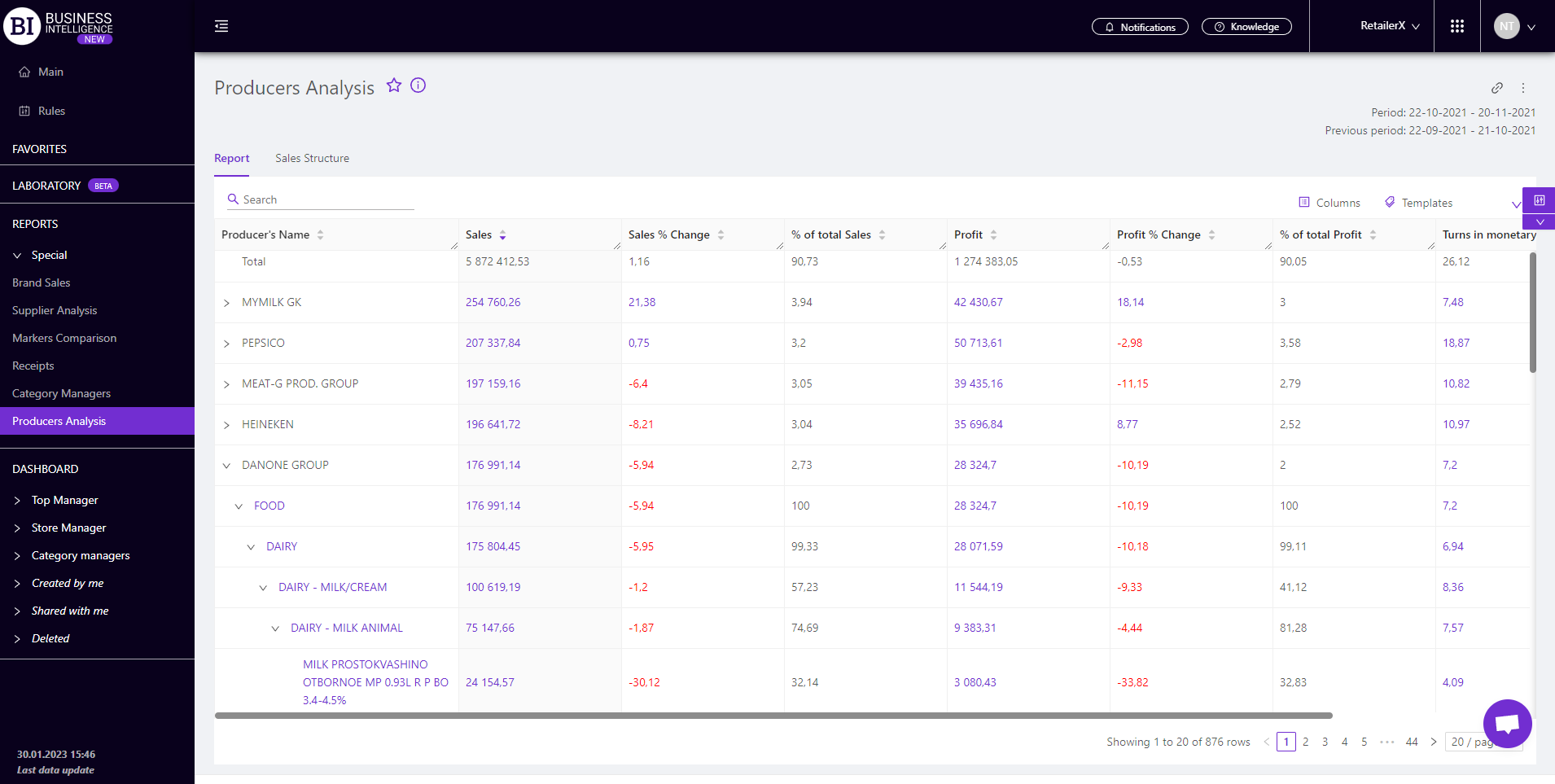
Report
-
view the required data for two periods: "Chosen" and "Previous", comparing them with each other;
-
analyze data at different levels, going from producer to category and SKU;
-
visually monitor the dynamics of key metrics.
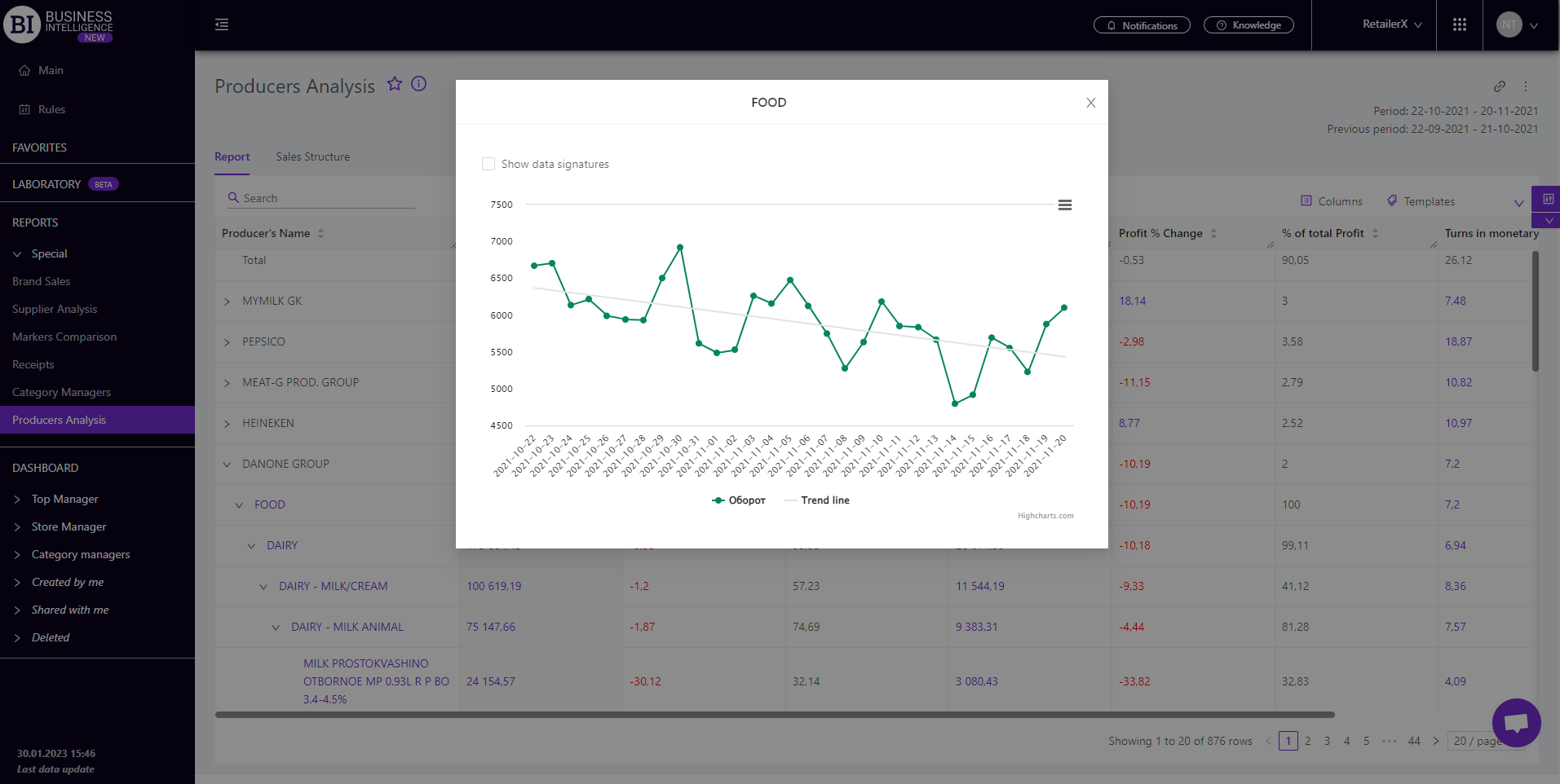
Sales Structure
The "Sales Structure" tab contains two visualizations that allow to compare the shares of key sales metrics and stocks of each producer for the chosen period:
-
upper visualization represents the structure of sales in context of producers, and is based on one of the following metrics: Sales, Sales Qty, Receipts Qty, Profit.
-
bottom visualization shows the structure of the stocks and is based on one of the following metrics: Stock Qty, Stock Primecost.
To change the metric on the visualization, you need to activate the check-box next to the metric required above the visualization.
The visualizations are interconnected. When hovering over a producer name in one of the visualizations pop-ups with percentages and quantities of producer sales or its stock balances appear on both of them.
With the help of this information it is possible to bring the balance of sales and stocks to the optimal level.
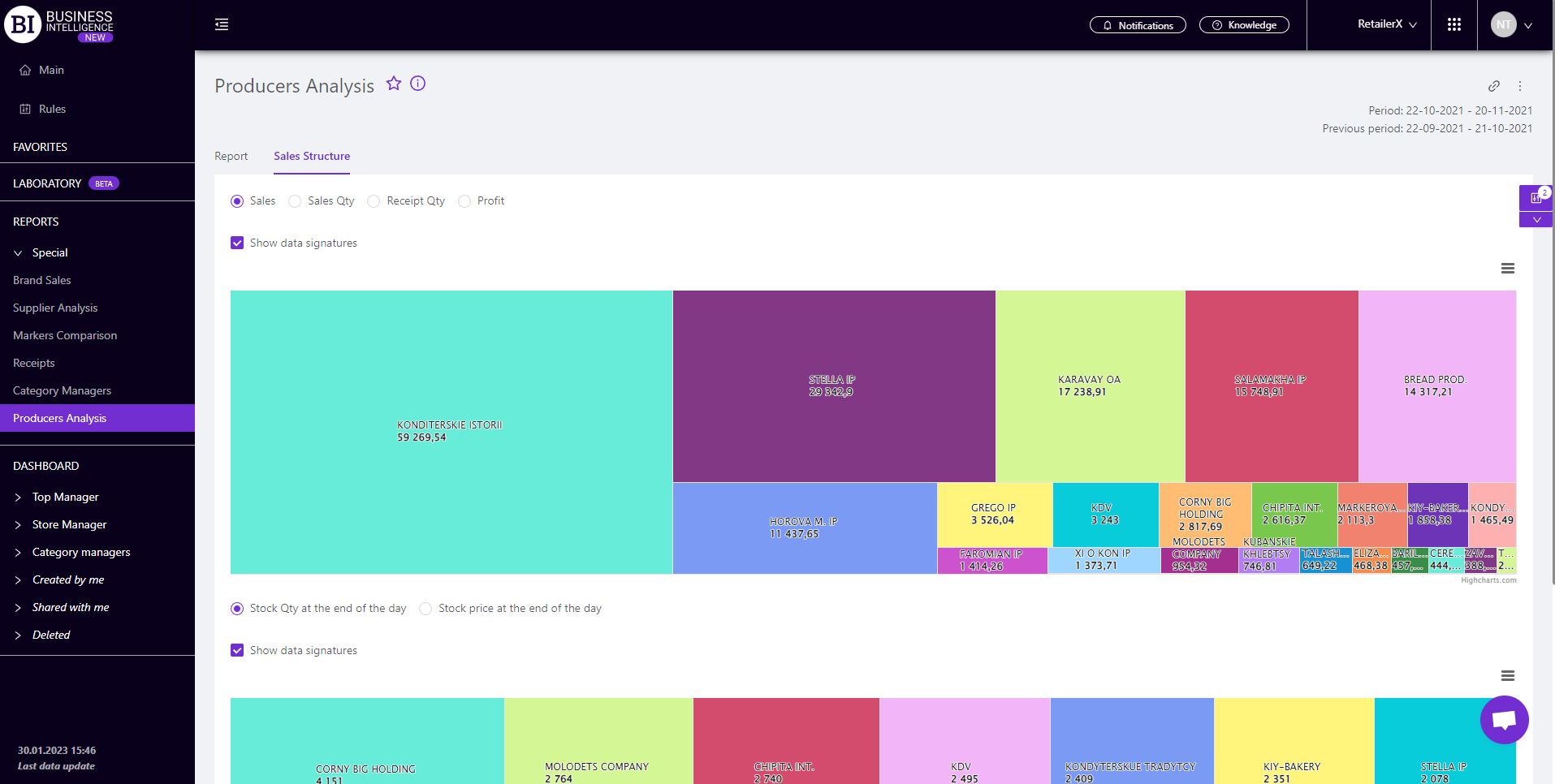
Advice! If producers have insignificant shares in sales, pay attention to their shares in the stocks. They shouldn’t be big. Otherwise, it will indicate that the products of these producers are not in demand among the clients.
-
planned metrics and their execution;
-
producer products price distribution;
-
comparative dynamics of key metrics.
-
filling the chain categories with producer products.
-
in the "Producer Analysis" report click on the clickable category name in the first column of the report and configure the necessary producer in the filter.
-
from the "Category Sales" report go to "Category Card" and configure the necessary producer in the filters.
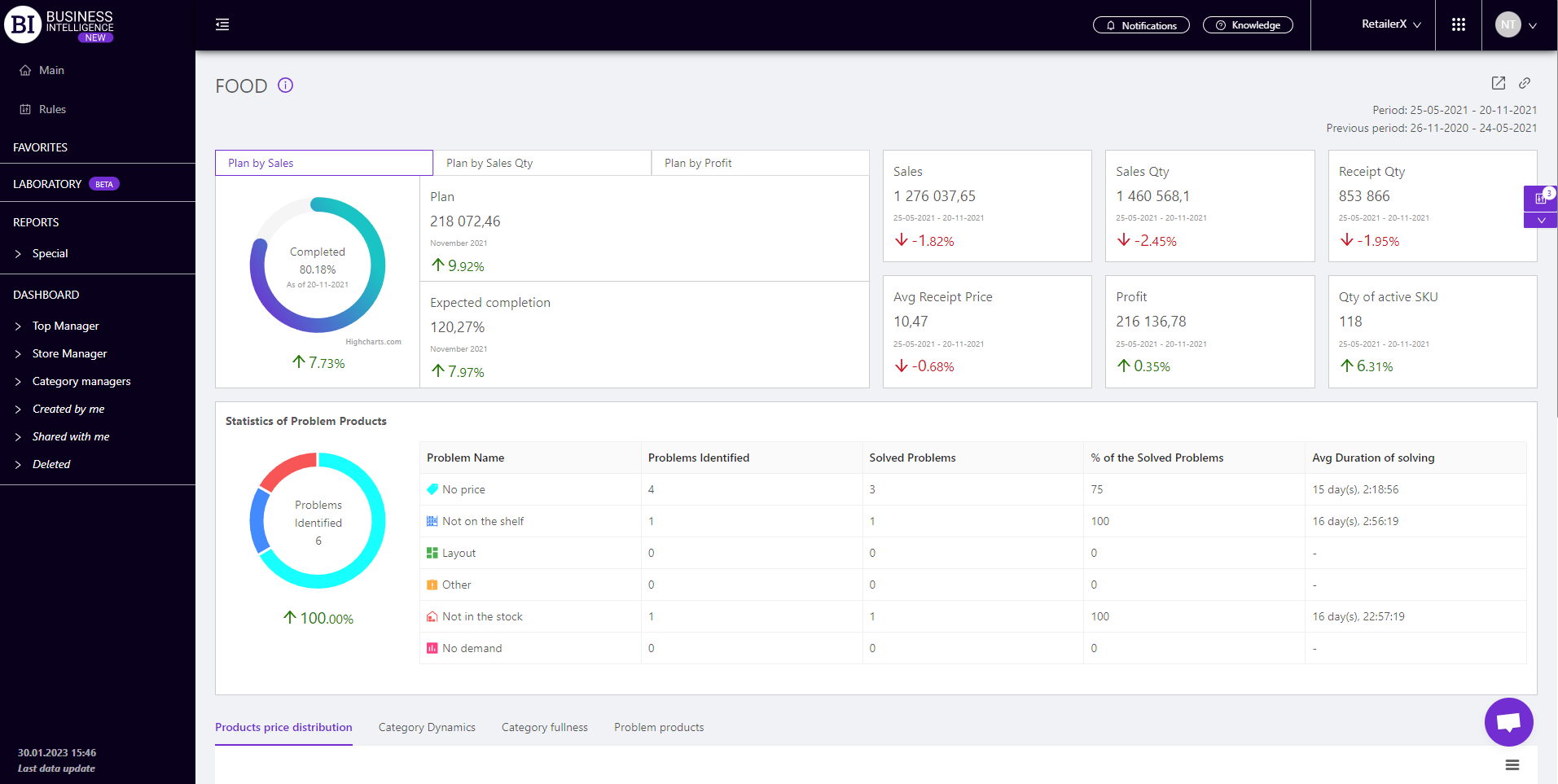
Metrics
-
Receipt Penetration of Promo products Change
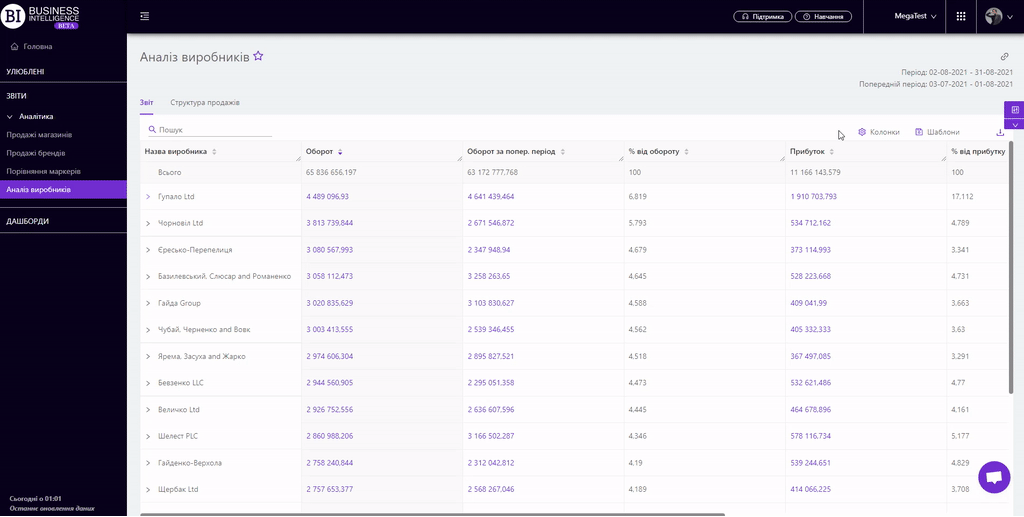
"Templates" button - saves the configured report columns as a template.
On the right above the table a context menu is opened where the user can select the following actions:
- "Lock the total row" - fixes the "Total" row in the top row of the table.
- "Save XLS" - saves table data to an xls-file.
To quickly find the necessary unit enter the first letters/symbols of the unit name in the search field. The search works automatically, leaving all found matches in the table.
To reset the search results, click on the cross in the search field.
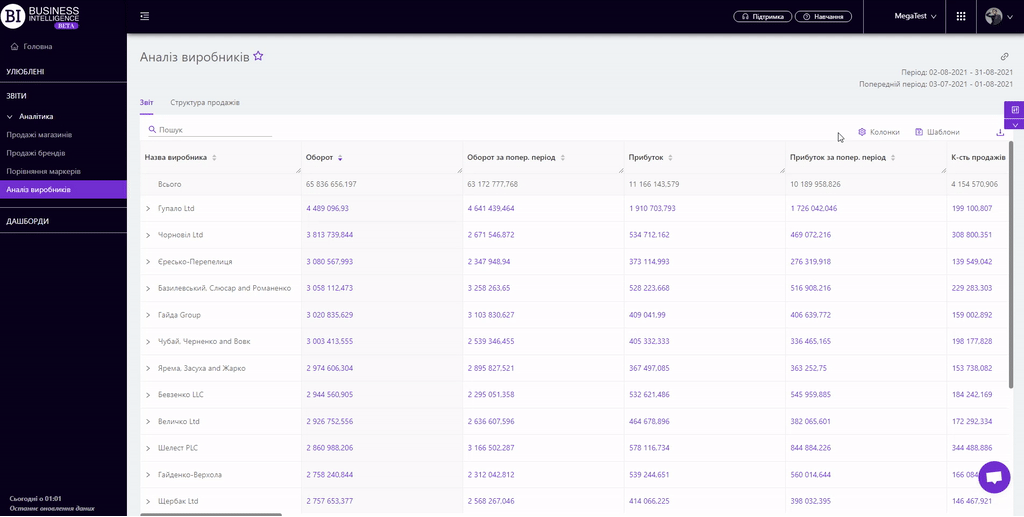
Filters
- Period
- Previous period
- Stores
- Categories
- Brands
- Suppliers
- Day of the Week
- Interval
- Level
- Assortment Type
- Receipt Markers
- Product Markers
- Like for like
